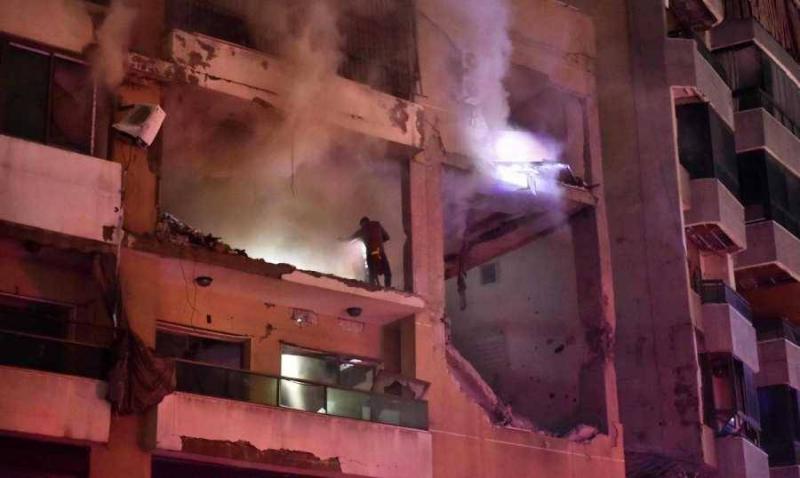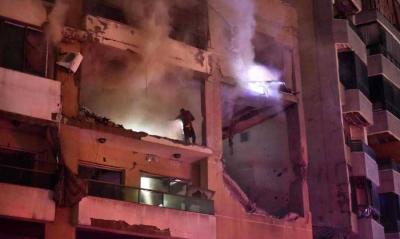Two days after the assassination of Saleh al-Arouri, Deputy Head of Hamas' Political Bureau, in the southern suburbs, shared American and French concerns have escalated regarding the potential for a comprehensive confrontation between Israel and Hezbollah, which may have become closer than ever since the outbreak of the Gaza war. In the last few hours, the outlines of immediate diplomatic efforts by both countries towards Israel and Lebanon have emerged, primarily under the banner of preventing the transfer of the Gaza war to Lebanon. This theme is not new in the dealings of the United States and France with the ongoing confrontations along the southern border of Lebanon with Israel since October 8. However, it has taken on significant importance this time, given serious diplomatic realities, with exceptional fears that the Israeli airstrike on Hamas' office in the southern suburbs and the assassination of al-Arouri along with other officials and their companions may have placed the confrontation on a different page, warning of the expansion of operations and retaliatory responses, thus possibly releasing the confrontation from all constraints adhered to by Hezbollah and Israel until now. Despite the same data still suggesting that the escalation following the assassination will not reach the ultimate fear of a military outbreak, the American and French efforts have gained an urgent preemptive character, reflecting the extraordinary precision that has come to characterize the entire regional situation, stemming from fears of the war expanding specifically to Lebanon.
Diplomatic and political circles are observing what Secretary General of Hezbollah, Sayyed Hassan Nasrallah, might include in his speech today, 48 hours after new positions were expressed following his speech last Wednesday, particularly regarding the implications of al-Arouri's assassination in Hezbollah's stronghold in the southern suburbs. As for the accuracy of reports about the detention of a security personnel in the incident area, judicial sources stated that the public prosecutor’s office has not been informed of any individual being detained in this regard.
The seriousness of these developments and concerns was first reflected in the U.S. State Department, which announced that U.S. Secretary of State Antony Blinken and his French counterpart Catherine Colonna agreed on Wednesday to seek steps to prevent the expansion of the war in the Middle East after strikes in Lebanon and Iran. State Department spokesman Matthew Miller stated that Blinken and Colonna discussed via phone the importance of measures to prevent the escalation of the conflict in Gaza, including positive steps to ease tensions in the West Bank and avoid escalation in Lebanon and Iran. Colonna also contacted caretaker Prime Minister Najib Mikati on Wednesday evening.
Another notable indicator of the immediate nature of the American-French action was the arrival of U.S. envoy Amos Hochstein in Tel Aviv yesterday, sent by President Joe Biden, under the title of striving to prevent the territory of the Gaza war from expanding into Lebanon. No official Lebanese information was available by last night regarding a potential schedule for Hochstein's arrival in Beirut. Reports from Israel indicated that Israeli Defense Minister Yoav Gallant received Hochstein and stated, "We prefer to resolve the conflict with Hezbollah politically, but time is running out, and we are committed to returning residents to the north after changing the security situation." Meanwhile, French Ambassador to Lebanon Hervé Magro confirmed during a meeting with the Maronite League that his country's efforts are focused on ensuring Lebanon is not drawn into the ongoing regional escalation. Magro announced that Minister Jean-Yves Le Drian will soon be in Beirut to follow up on the mission of the quintet committee in seeking a solution to the presidential vacancy crisis, according to "An-Nahar."




